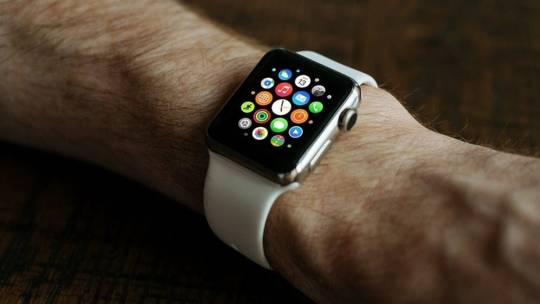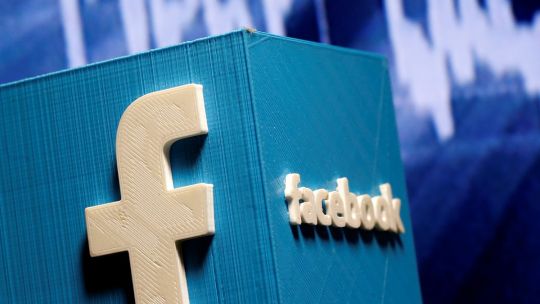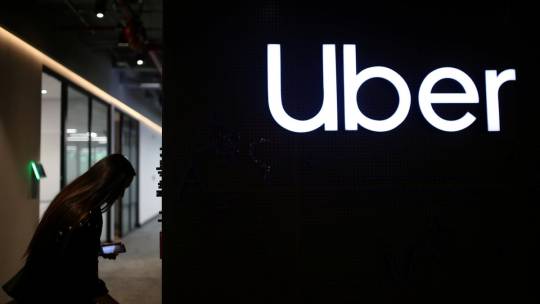#3technologybets
Text
The Secretive Company That Might End Privacy as We Know It

Addicted to A.I.
Mr. Ton-That, 31, grew up a long way from Silicon Valley. In his native Australia, he was raised on tales of his royal ancestors in Vietnam. In 2007, he dropped out of college and moved to San Francisco. The iPhone had just arrived, and his goal was to get in early on what he expected would be a vibrant market for social media apps. But his early ventures never gained real traction.In 2009, Mr. Ton-That created a site that let people share links to videos with all the contacts in their instant messengers. Mr. Ton-That shut it down after it was branded a “phishing scam.” In 2015, he spun up Trump Hair, which added Mr. Trump’s distinctive coif to people in a photo, and a photo-sharing program. Both fizzled.Dispirited, Mr. Ton-That moved to New York in 2016. Tall and slender, with long black hair, he considered a modeling career, he said, but after one shoot he returned to trying to figure out the next big thing in tech. He started reading academic papers on artificial intelligence, image recognition and machine learning.Mr. Schwartz and Mr. Ton-That met in 2016 at a book event at the Manhattan Institute, a conservative think tank. Mr. Schwartz, now 61, had amassed an impressive Rolodex working for Mr. Giuliani in the 1990s and serving as the editorial page editor of The New York Daily News in the early 2000s. The two soon decided to go into the facial recognition business together: Mr. Ton-That would build the app, and Mr. Schwartz would use his contacts to drum up commercial interest.Police departments have had access to facial recognition tools for almost 20 years, but they have historically been limited to searching government-provided images, such as mug shots and driver’s license photos. In recent years, facial recognition algorithms have improved in accuracy, and companies like Amazon offer products that can create a facial recognition program for any database of images.Mr. Ton-That wanted to go way beyond that. He began in 2016 by recruiting a couple of engineers. One helped design a program that can automatically collect images of people’s faces from across the internet, such as employment sites, news sites, educational sites, and social networks including Facebook, YouTube, Twitter, Instagram and even Venmo. Representatives of those companies said their policies prohibit such scraping, and Twitter said it explicitly banned use of its data for facial recognition.
Read the full article
#1technews#0financetechnology#0technologydrive#057technology#0dbtechnology#0gtechnology#1technologycourtpullenvale#1technologydrive#1technologydrivemilpitas#1technologydrivemilpitasca95035#1technologyplace#1technologywaynorwoodma#2technologydrive#2technologydrivestauntonva24401#2technologyfeaturestopreventcounterfeiting#2technologyplacemacquarie#2technologyplacemacquarieuniversity#3technologybets#3technologybetsgenpact#3technologydrive#3technologydrivemilpitasca95035#3technologydrivepeabodyma#3technologydrivewestboroughmassachusetts01581#3technologyltd#3technologyplace#3technologywaynorwoodma#360technewshindi#3dprintingtechnews#3dtechnews#3dtechnologynews
3 notes
·
View notes
Text
Facebook, Telcos Plan Subsea Cable to Connect Africa, Middle East and Europe

Facebook and a team of African and global telecom majors have struck a deal to build one of the world's largest subsea cable networks, boosting internet availability across three continents, they said in a joint statement on Thursday.South Africa's MTN GlobalConnect and Mauritius-based infrastructure provider WIOCC are partners in the project, along with China Mobile International, French telecoms major Orange SA, Saudi Arabia's stc, Telecom Egypt, and Vodafone.The project, called 2Africa, aims to build 37,000 kilometres of subsea cable infrastructure which will directly connect countries around the African coast to Europe and the Middle East, according to its website.The network will have a design capacity of up to 150 terabytes per second (Tbps) on key parts of the system, the site said. The 11 new cables rolled out between 2009 and 2016 in sub-Saharan Africa provided around 70Tbps of design capacity.Subsea infrastructure provider Alcatel Submarine Networks will build the project, which is expected to be operational by 2023/24, the statement said. The companies did not reveal how much money they were investing."2Africa... will interconnect Europe, the Middle East, and 21 landings in 16 countries in Africa," the partners said in the statement.Subsea cables form the backbone of the internet, carrying 99 percent of the world's data traffic.Africa's big economies have a large and fast growing population of internet users, with growth in internet use fuelled by rapidly expanding mobile broadband networks and ever more affordable phones.However, with a population of 1.3 billion, Africa is still a laggard in internet connectivity, with average internet penetration at around 39 percent against a world average of 59 percent.On completion the subsea network will deliver more than the total combined capacity of all subsea cables serving Africa today, the firms said in the statement."Improving connectivity for Africa is a significant step which lays the groundwork for increased digitalisation across the continent," said Vodacom International Business Chief Officer Diego Gutierrez.Vodacom, which is majority owned by Britain's Vodafone, is South Africa's second biggest telecom player.© Thomson Reuters 2020
Read the full article
#1technews#0financetechnology#03technologysolutions#057technology#0dbtechnology#1technologycourtpullenvale#1technologydrive#1technologydrivemilpitas#1technologydrivemilpitasca95035#1technologydrivepeabodyma#1technologydriveswedesboronj08085#1technologyplace#2technologydrive#2technologydrivestauntonva24401#2technologydrivewarana#2technologyfeaturestopreventcounterfeiting#2technologyplacemacquarie#2000stechnology#3technologybets#3technologybetsgenpact#3technologycircuithallam#3technologydrive#3technologydrivemilpitasca95035#3technologydrivepeabodyma#3technologydrivewestboroughmassachusetts01581#3technologyplace#3technologywaynorwoodma#360technewshindi#3dtechnologynews#3mtechnologynews
0 notes
Text
Aarogya Setu App Data Only Shared With Government Officials Working on COVID-19: NITI Aayog CEO

The Central government's Aarogya Setu mobile application is based on "privacy-first by design" principle keeping in mind the safety and privacy of users' data, said Amitabh Kant, CEO of NITI Aayog. He added that the user data from the app would only be provided to those government officials who were directly in charge of containing the spread of the Coronavirus in India.In an exclusive interaction with ANI, Kant informed that Aarogya Setu mobile application has been built to ensure privacy and security of personal information that was collected from people. It is based on "privacy-first by design" principle."Aarogya Setu has a clearly defined protocol for access to data. National Informatics Centre (NIC) is the fiduciary of the data, and data is only shared with government officials directly involved in COVID-19 related medical and administrative interventions on a strictly need-to-know basis and limited in scope only to their direct work," said Kant.Concerns over the Aarogya Setu App were raised when a French ethical hacker claimed to have access of the users' data and had highlighted security bugs within the app which could be privacy ramifications.Clarifying apprehensions that some users may have related to data security, Kant said: "When an individual provides his/her mobile number for registration, the Aarogya Setu server assigns an anonymous, randomized unique device identity number (DiD) and associates it with their mobile device. This pair - the mobile number, DiD and other personal information is securely stored in a highly encrypted server."After registration, the app asks for your name and mobile number (any name that you want to be called by, not your legal name). In addition, it asks for your age and gender (both have a direct co-relation to COVID-19 impact), profession (to ensure people who are in essential services are proactively assisted), countries visited in last 30 days and willingness to volunteer in times of need."All contact tracing and location information that might have been uploaded to the Aarogya Setu server is permanently deleted 45 days from the date of upload if you have not tested positive for COVID-19 within that period of time. If you are infected, all contact tracing and location information pertaining to you are permanently deleted from the server 60 days after you are declared cured of COVID-19," added Kant.While the app requests users to share location, the app does not use location data for contact tracing. "The app has clearly defined and delimited how location information is used - only on an anonymous or aggregate basis and for the specific purpose of identifying hotspots so that proactive increased testing and sanitisation of these locations can be done," he said, adding that the app does not continuously monitor any user's location.According to Government data till date, Aarogya Setu app has registered about 9.6 crore users since its launch on Apri 2l. However, contact tracing data has been fetched of only 12,000 users who had tested positive for COVID-19 constituting less than 0.1 percent of all users. "Unless a person turn COVID-19 positive, this information is never accessed or pushed to the server and is permanently deleted from the phone 30 days after it is collected," he said."The central feature of the app is location history and Bluetooth-based contact tracing in the fight against the coronavirus. The Bluetooth interaction between two phones on which the app is installed is performed anonymously, using a randomised and secure Device Identification Number (DID) that has been assigned to the devices at the time of registration," added Kant.Along with the user's location history which is sampled sparingly (once every 30 minutes), this information is securely encrypted using the native key chain of the phone's operating system and is stored on the phone itself."The Aarogya Setu engine is designed to respect the privacy of COVID-19 positive patients. The back-end of the App is integrated with ICMR database through an API, and information about patients who have tested COVID-19 positive is received in real-time. It is this ICMR database which is the source from which the app receives information about all COVID-19 positive cases," added Kant."It is only in the event there is a requirement for individual medical intervention that the anonymised personal information is re-identified. The team is exploring moving from a one-time DID to dynamically generated DIDs for every user, to further enhance privacy," added Kant in an interview to ANI.Explaining significant predications made by the Aarogya Setu, Kant said, "In the last 6 weeks, Aarogya Setu App has emerged as a key technology solution aimed in combating COVID-19. Through this app, several potential emerging and hidden hotspots were identified. The engine predicted 130 hotspots across India at the sub-post office-level between April 13th to April 20th. Every forecasted hotspot has since been declared a real hotspot and acted upon by the health ministry."
Read the full article
#1technews#03technologysolutions#057technology#0dbtechnology#0gtechnology#1technologycourtpullenvale#1technologydr#1technologydrivemilpitas#1technologydrivemilpitasca95035#1technologydriveswedesboronj08085#1technologywaynorwoodma#1/0technologycorp#2technologydrive#2technologydrivewarrennj#2technologyfeaturestopreventcounterfeiting#2technologyplacemacquarie#2technologywaynorwoodma#2000stechnology#3technologybets#3technologycircuithallam#3technologydrive#3technologydrivemilpitasca95035#3technologydrivepeabodyma#3technologydrivewestboroughmassachusetts01581#3technologyltd#3technologyplace#3technologywaynorwoodma#360technewshindi#3dtechnews#3dtechnologynews
0 notes
Text
Google Announces Company Holiday to Stem Coronavirus Burnout

Alphabet's Google said on Friday it has asked employees to take a day off on May 22, to address work-from-home-related burnout during the coronavirus pandemic.Chief Executive Officer Sundar Pichai announced the move in a memo to employees on late Thursday, which was first reported by CNBC.Google said it would begin reopening more offices globally as early as June, but most Google employees would likely work from home until the end of this year.Facebook also said on Friday it would allow workers who are able to work remotely to do so until the end of 2020.The virus, which has infected more than 3.9 million people globally so far, has forced strict lockdowns in most countries and changed the way businesses function, with work from home emerging as the new norm.© Thomson Reuters 2020
Read the full article
#1technews#0technologydrive#03technologysolutions#057technology#0dbtechnology#0gtechnology#1technologycourtpullenvale#1technologydrivepeabodyma#1technologydriveswedesboronj08085#1technologyplace#1technologyplacerocklandma#1technologywaynorwoodma#2technologydrivewarana#2technologydrivewestboroughma01581#2technologyfeaturestopreventcounterfeiting#2technologyplace#2technologyplacemacquarie#2technologyplacemacquarieuniversity#2technologywaynorwoodma#3technologybets#3technologycircuithallam#3technologydrivemilpitasca95035#3technologydrivewestboroughmassachusetts01581#3technologyltd#3technologyplace#3technologywaynorwoodma#360technewshindi#3dtechnews#3dtechnologynews#3mtechnologynews
0 notes
Text
Apple Watch Continued to Lead Global Smartwatch Shipments in Q1 With 55 Percent Share: Strategy Analytics

Apple Watch has maintained its lead in the global smartwatch market with a share of 55 percent in the first quarter of 2020, according to a report by research firm Strategy Analytics. The overall smartwatch market is reported to have seen 20 percent growth annually — thanks to nearly 14 million units shipped in the first quarter of this year. After Apple, Samsung has managed to hold the second position, while Garmin, the company that is popular for its fitness-focussed wearables, rose to third. Strategy Analytics reports that Apple shipped 7.6 million units of the Apple Watch worldwide in the first quarter of this year. This shows an year-over-year (YoY) increase of 23 percent from the 6.2 million shipments record reported in the same quarter last year. With the increase in shipments, the Cupertino company managed to expand its share from 54 percent to 55 percent — its highest level for two years. “Apple Watch continues to fend off strong competition from hungry rivals like Garmin and Samsung. Apple Watch owns half the worldwide smartwatch market and remains the clear industry leader,” said Neil Mawston, Executive Director at Strategy Analytics, in a statement. Followed by Apple, Samsung continued its second position in the global smartwatch market with a shipments record of 1.9 million in the first quarter. This was slightly up from 1.7 million a year ago. However, the overall share of the company in the global smartwatch market has dipped from 15 percent to 14 percent during the past year. Strategy Analytics noticed that the company's growth was impacted by the coronavirus lockdown in South Korea and renewed competition from players such as Garmin. Garmin, on the other hand, has managed to make a comeback to the third position — overtook Fitbit — with a shipments result of 1.1 million units worldwide in the first quarter of this year. This was 38 percent increased annually from 0.8 million in the first quarter last year. Smartwatch vendor Q1 2019 shipments (in millions) Q1 2020 shipments (in millions) YoY change (in percentage) Apple 6.2 7.6 22.6 Samsung 1.7 1.9 11.8 Garmin 0.8 1.1 37.5 Others 2.7 3.1 14.8 Total 11.4 13.7 20.2 Sharp decline expected in Q2 due to COVID-19
Strategy Analytics predicts that due to the COVID-19 pandemic, global smartwatch shipments will drop sharply in the second quarter. “Sales in Europe and the US have inevitably been hit by virus lockdown in recent months. However, the second half of this year and beyond will see a decent rebound, as consumers worldwide steadily regain confidence and more retail stores reopen,” said Woody Oh, Director at Strategy Analytics. Is iPhone SE the ultimate 'affordable' iPhone for India? We discussed this on Orbital, our weekly technology podcast, which you can subscribe to via Apple Podcasts or RSS, download the episode, or just hit the play button below.
Read the full article
#1technews#0financetechnology#03technologysolutions#057technology#0gtechnology#1technologycourtpullenvale#1technologydr#1technologydrive#1technologydrivemilpitas#1technologydrivemilpitasca95035#1technologydrivepeabodyma#1technologydriveswedesboronj08085#2technologydrivestauntonva24401#2technologydrivewarana#2technologydrivewarrennj#2technologyplacemacquarie#2technologyplacemacquarieuniversity#2000stechnology#3technologybets#3technologybetsgenpact#3technologydrive#3technologydrivemilpitasca95035#3technologydrivepeabodyma#3technologydrivewestboroughmassachusetts01581#3technologyltd#3technologyplace#3technologywaynorwoodma#3dprintingtechnews#3dtechnews#3dtechnologynews
0 notes
Text
People Are Panic-Buying Meat, Toilet Paper … and Pelotons?

Lauren Allbright, a teacher, children’s book author and triathlete, was antsy from weeks of sheltering in place. So last month, she “panic bought” a $2,245 Peloton bike.It was a “pricey decision,” she admitted. But her gym was closed, and it had been raining nonstop in Richardson, Texas, where she lives. Soon the heat would make it even harder for her to train outside.So when Texas extended its stay-in-place rules by a month, Ms. Allbright, 39, clicked “buy.” She reasoned that her husband and three children would also use the internet-connected bike, which comes with streaming classes for an extra $39 a month.“Working out daily is huge for our mental health,” she said.Peloton, which last year endured a rocky initial public offering and a widely mocked holiday ad, is emerging as a potential winner of the quarantine economy. While gyms, boutique studios and personal trainers have been sidelined, home workout systems are thriving.Since mid-March, Peloton’s stock has soared 86 percent, valuing the New York company at $10 billion, or twice as much as the gym chain Planet Fitness. Last month, Peloton reported a record: More than 23,000 people had joined one of its live classes.When Peloton reports quarterly financial results on Wednesday, Wall Street expects the unprofitable company to post rising sales. Analysts pointed to spikes in the number of ratings for fitness classes on Peloton’s system and longer waits for delivery of the bikes, which signal higher-than-expected demand. The results may not reveal the full extent of Peloton’s popularity, since they cover only a few weeks of the lockdown period in March.“Consumer habits are fundamentally changed coming out of this crisis and this pandemic,” said Ron Josey, an analyst at JMP Securities. “A device and service like Peloton comes to the forefront in that.”Peloton declined to comment ahead of its earnings.Other home fitness companies have reported similar surges in demand. Sales at Echelon, which makes a less expensive internet-connected bike, grew five times higher than expected in the first three months of 2020, with demand comparable to Black Friday, said Lou Lentine, the company’s chief executive. Icon Health & Fitness, which owns the NordicTrack and ProForm equipment brands, said sales last month were four times as high as a year earlier.“It’s absolutely bigger than any other boom time we’ve had,” said Mark Watterson, president of iFit, a division of Icon Health.New converts include Ben Carlson, a wealth manager in Grand Rapids, Mich. He wasn’t interested in a home workout setup before because he exercised on lunch breaks at a gym near his office.But now that he’s working at home with three children under the age of 6, it’s harder to get away for a run. Last month, he bought a Peloton, which he rides after his children are in bed.The bike is “part of my new life for the time being,” Mr. Carlson, 38, said. Even when things reopen, he said, “I don’t know that I’ll be the first one to rush back into the gym.”Gyms and studios, which have frozen memberships while they are closed, are hurting. Some yoga and dance studios have resorted to asking for donations in exchange for free online classes. Several national gym chains have faced lawsuits and state investigations for charging fees during the shutdown.ClassPass, an online service for booking studio classes, said its revenue had dropped to nearly zero within 10 days in March. Last month, it rushed to create a virtual workout offering while laying off or furloughing more than half of its 690-person staff. It now offers 50,000 virtual classes and has waived the commission it normally takes from studios.Mindbody, a similar service, laid off or furloughed around 700 people, or 35 percent of its work force, in early April. Rick Stollmeyer, chief executive, has said he does not believe Mindbody’s business will recover for more than a year.SoulCycle, which operates dozens of cycling studios, closed them in March, cutting employee pay by 25 percent and furloughing its instructors. The company began offering virtual workouts on SiriusXM and through an app called Variis, operated by Equinox Group, SoulCycle’s parent company.“Saturday Night Live” ribbed SoulCycle’s attempt to move its self-described “inspirational, meditative fitness experience” into instructors’ apartments. “I hear a lot of people talking about antibody. I am pro-body!” an instructor named Toyota, played by Chris Redd, barked.In March, SoulCycle also began taking preorders for a $2,500 home bike that it announced last year. The bikes, available in certain U.S. cities, are expected to begin shipping this month.“Equinox Group anticipates the consumer will want experiences both online and offline,” a spokesman said. When its studios reopen, SoulCycle said, it will make changes like placing bikes — normally packed close together — six feet apart, significantly cutting down on the number of customers per class.Peloton initially responded to the virus by extending a 30-day free trial of its digital-only subscription to its streaming classes to 90 days. It introduced contactless delivery for its equipment and pledged to waive up to $1 million of subscription fees for customers who had lost their jobs or were unable to work because of the coronavirus. Peloton also closed 96 showrooms around the country and stopped delivering the treadmills it also makes.Peloton and other providers of home exercise equipment are under pressure to create enough fresh digital content to keep users engaged. Among the most popular videos on Icon Health’s iFit platform are the ones that let people work out to travel montages, like a tour of Egyptian tombs.“People use them as a mind escape,” said Colleen Logan, head of marketing at Icon Health. “In your own four walls, you don’t want to be looking at someone else’s four walls.”Peloton stopped filming live classes in early April after an employee at its New York studio tested positive for the coronavirus. But by the end of the month, it was streaming live classes again.The first one happened on April 22 from the apartment of Robin Arzón, Peloton’s head instructor. More than 23,000 customers logged in and rode along with her, issuing virtual high fives and climbing a digital leader board.“When things are uncertain, we adapt,” Ms. Arzón wrote on Instagram, alongside a photo of herself surrounded by production equipment and electrical cords in her apartment.
Read the full article
#1technews#0financetechnology#0technologydrive#03technologysolutions#057technology#0dbtechnology#0gtechnology#2000stechnology#3technologybets#3technologybetsgenpact#3technologycircuithallam#3technologydrive#3technologydrivemilpitasca95035#3technologydrivepeabodyma#3technologydrivewestboroughmassachusetts01581#3technologyltd#3technologywaynorwoodma#360technewshindi#3dtechnews#3dtechnologynews#3mtechnologynews#4technologycircuithallam#4technologycomponentsofcrm#4technologydr#4technologydrivelondonderrynh03053#4technologydrivepeabodyma#4technologydrivepeabodyma01960#4technologydrivewestboroughma#4technologydrivewestboroughma01581#4technologywaysalemma
0 notes
Text
Harry Potter and the Philosopher’s Stone to Be Read by Daniel Radcliffe, David Beckham, Others

Harry Potter and the Philosopher's Stone — the first Harry Potter book — will be read chapter-wise by several celebrities, author J.K. Rowling has announced. That includes Harry Potter actor Daniel Radcliffe, ex-footballer David Beckham, Fantastic Beasts stars Eddie Redmayne and Claudia Kim, and actors Stephen Fry, Dakota Fanning, and Noma Dumezweni. Fry has previously lent his voice to the Harry Potter audiobooks, Redmayne and Kim play Newt Scamander and Nagini in the Fantastic Beasts spin-off series, while Beckham, Fanning, and Dumezweni are new to the Harry Potter club.An official announcement says to expect “more surprises and special appearances”. The Harry Potter readings are being offered to entertain those stuck at home during the lockdown amid the ongoing coronavirus pandemic.Readings will be offered for free in video and audio-only form so you can choose the format you prefer. The former will be available at harrypotterathome.com, with the latter exclusive to the streaming service Spotify. The first chapter of Harry Potter and the Philosopher's Stone, “The Boy Who Lived”, has been read by Radcliffe himself. It's 25 minutes long. New chapters — there are 17 in total in the Philosopher's Stone — will be released every week starting now and until the end of June.This is the second phase of the “Harry Potter at Home” initiative launched by Rowling and her agency, The Blair Partnership, in early April, which kicked off with free audiobook and ebook versions of “Harry Potter and the Philosopher's Stone”, available for free via Audible Stories and participating libraries at the digital library supplier OverDrive, respectively.“Harry Potter and the Philosopher's Stone” has sold over 120 million copies since its release in 1997, putting it at the top among the Harry Potter series, which has total lifetime sales of over 500 million, making it the best-selling book series of all time.Can Netflix force Bollywood to reinvent itself? We discussed this on Orbital, our weekly technology podcast, which you can subscribe to via Apple Podcasts or RSS. You can also download the episode or just hit the play button below.
Read the full article
#0financetechnology#03technologysolutions#057technology#0gtechnology#1technologycourtpullenvale#1technologydrive#1technologydrivemilpitas#1technologydrivemilpitasca95035#1technologydrivepeabodyma#1technologydriveswedesboronj08085#1technologyplace#1technologyplacerocklandma#1/0technologycorp#2technologydrivewarrennj#2technologyfeaturestopreventcounterfeiting#2technologyplace#2technologyplacemacquarie#2technologywaynorwoodma#2000stechnology#3technologybets#3technologydrivemilpitasca95035#3technologydrivepeabodyma#3technologydrivewestboroughmassachusetts01581#3technologywaynorwoodma#360technewshindi#3dtechnews#3dtechnologynews#3mtechnologynews#4technologydr#4technologydrivelondonderrynh03053
0 notes
Text
In This Creepy New Novel, the Toys Are Watching Us

Samanta Schweblin’s writing straddles the unsettling border between the real and the surreal. Her novel “Fever Dream” takes place in a hospital where a dying woman narrates episodes from her past to a strange young boy who is missing part of his soul. Her short story collection “Mouthful of Birds” features a woman who falls in love with a merman, an expectant mother who shrinks her fetus to the size of an almond and spits it out, and a teenage girl who devours live birds.Her latest novel, “Little Eyes,” may be her most unsettling work yet — and her most realistic. Its dystopian premise is eerily plausible: People around the world have become obsessed with robotic stuffed animals called kentukis, which are operated remotely by strangers who can move and see the toy’s surroundings but can’t communicate except through grunts and squeaks.The narrative unfolds in more than a dozen towns and cities around the world, with characters that include “dwellers” who inhabit the toys and the “keepers” who own them. A lonely Guatemalan boy operates a stuffed dragon in Norway and dreams of seeing snow. A Peruvian woman who inhabits a bunny in Germany becomes engrossed with the romantic life of her keeper. A Venezuelan girl who has been kidnapped by sex traffickers is rescued by a panda kentuki controlled by someone in Croatia. The relationships between the owners and their toys range from nurturing to manipulative to violent, raising questions about voyeurism, the limits of virtual connection and how technology is both infantilizing and empowering us.“There’s a lot of ambiguity in her writing, and she trusts the reader a lot,” Megan McDowell, who translated “Little Eyes” and Schweblin’s earlier works into English, said in a Skype interview. “She leads you where she wants you to go, and then she leaves you there.”Schweblin, 42, grew up in a middle-class family on the outskirts of Buenos Aires and has lived in Berlin since 2012. She has long been celebrated as one of the most innovative Spanish-language writers of her generation, ever since she published her award-winning debut collection nearly 20 years ago. Her books have been translated in 35 languages. But her work has only recently caught on with U.S. readers, beginning with the English translation in 2017 of “Fever Dream.” Since then, her global rise has been swift: “Fever Dream” was a finalist for the Booker International Prize and won the Shirley Jackson Award for best novella, and is being adapted into a film for Netflix; both “Mouthful of Birds” and “Little Eyes” were longlisted for the Booker International Prize.In an email interview, Schweblin discussed the avoidance of technology in literature, the surreal nature of her work and how she thinks quarantine is affecting us. A condensed and edited excerpt from the exchange, which McDowell translated, is below.Can you tell me about where you are right now and how the pandemic has affected your daily life?I’m in Lago Puelo, in the far south of Argentine Patagonia, a small and isolated town. I came here almost two months ago now to visit my mom for a few days, but the pandemic and obligatory quarantine trapped me, and I haven’t been able to get back to Berlin.The first days were tough. Life was telling me: You’re staying here, with your little carry-on suitcase and your two books for the plane, you’re staying here and you have no return date. But now the days pass quickly, and I feel ever more comfortable, strangely comfortable. I rented a ramshackle cabin from a neighbor where I go every day to write. On the way I pass cows, bulls, horses, packs of dogs that keep me company almost the whole way. I concentrate on work, I exercise, I practically don’t talk to anyone all day long. I’m almost ashamed to say it: I’m happy amid the storm.How did you come up with the concept of kentukis?From the intersection of some circumstances of my life two or three years ago: a lot of connection with other people through social networks and mobile devices, traveling a lot, practically jumping city to city, language to language and culture to culture. Also a disquiet, or curiosity, that I couldn’t manage to formulate to myself and that had to do, precisely, with the way literature was writing these worlds.I was reading contemporary literature, and I could feel how writers often avoided naming terms that by then absolutely belonged to our reality: “WhatsApp,” “Instagram,” even something as simple as the idea of a “cellphone.”I myself, in my own writing, found myself noticing this problem. Why does the incursion of these technological realities into more literary texts bother us so much? Or, for example, absolutely realistic and literary poetry that dares to include this new reality, but are then labeled as “tech-poetry” or “sci-fi” or “futurist”? I wondered, and I still wonder, what happens to us with technology that we incorporate it so easily into our everyday, but then we reject it in the space of fiction?As a writer, another question arose from all this, the question that I think finally freed the idea of the kentukis: How can we talk about technology without getting tangled up in technical terms? How can we talk about the problems that we, as users, have with technology, without letting technology play a starring role?Your work often features animals, and “Little Eyes” centers on machines that are part human, part stuffed animals. What effect were you aiming for with that combination?Animals, toys, robots, all have in common a strange moral force that they exercise over us. There’s something in those eyes, in the way we see ourselves reflected, that destabilizes us. The digital world is full of strangers, real people without faces or bodies. If we could see their facial expressions and gestures, would we behave the same way with them?Pets watch how we live, they know we’re real, and we like to be looked at and adored. But it also soothes us to know that an animal looks but doesn’t talk, adores but doesn’t offer an opinion.Something that makes the relationships between kentukis and their owners so uncomfortable is that the kentukis can’t speak. That reminded me of something I read about your childhood — that you stopped speaking for a year when you were 12 because you didn’t want to be misunderstood. I wondered how that experience shaped your approach to language and writing.How odd, I had never made that connection, but you’re absolutely right. The thing is, language has always made me uncomfortable. I feel language as something heavy, rigid, but above all, inexact. It’s so easy to open our mouths and say something we’d rather not have said, it’s so terrifying to finally name out loud this thing that wasn’t said and to see it transformed into something real.Clarice Lispector said, “The word is my dominion over the world.” That’s what I feel with the written word: While orality exposes me to all the noises and dangers of language, the written word stops the world and gives me all the time I need to say exactly what I want to say.At the moment, we’re all isolated but the world also feels more interconnected, because every person in every country is experiencing, to a degree, the same catastrophe. As an artist, how are you processing what’s happening right now? Do you think the world you created in “Little Eyes” will resonate with people who are now even more dependent on technology for connection?It’s strange, because it wasn’t intentional. In “Little Eyes,” the users connect without bodies, they’re there and at the same time they’re not. They can move freely around another person’s living, nip at their heels, and still not really be there.In this sense, the quarantine isn’t imposing something new. We’ll come out of it with new rules, which will normalize part of this world in which we are beings who are ever more surveilled, and where the physical presence of bodies almost seems threatening.What are you working on right now?I’ve been thinking about a new novel for a few months now, but I’m still in the stage of notes and preparation, and I still don’t fully see its form or tone. In part because of this coronavirus quarantine but also because of personal reasons, my life has taken a radical turn in these past three months. I feel dizzy, as I guess most people in the world are right now, and I foresee that something essential is changing in the way I look at everything. I guess it’s a process that we’re all going through. I feel myself floating when I’m surprised to see I don’t know where I stand, and my ideas about what fiction is and how it affects reality change day by day.
Read the full article
#0financetechnology#03technologysolutions#057technology#0dbtechnology#0gtechnology#1/0technologycorp#2000stechnology#3technologybets#3technologydrive#3technologydrivemilpitasca95035#3technologydrivepeabodyma#3technologydrivewestboroughmassachusetts01581#3technologyltd#3technologyplace#360technewshindi#3dtechnews#3dtechnologynews#3mtechnologynews#4technologycircuithallam#4technologycomponentsofcrm#4technologydr#4technologydrivepeabodyma#4technologydrivewestboroughma#4technologydrivewestboroughma01581#4technologywaysalemma#5technologycareers#5technologydrive#5technologydriveirvineca#5technologydrivemilfordma#5technologymission
0 notes
Text
Facebook Reports 'Signs of Stability' in Ad Spending After Coronavirus Drop

Facebook beat analysts' estimates for quarterly revenue on Wednesday and said it has seen "signs of stability" for sales in April after a plunge in March, in yet another signal that tech giants may weather the coronavirus-induced economic collapse better than other sectors. The announcement came a day after Alphabet's Google said a drop in its online ad sales similarly steadied in April. Shares of Facebook, the world's biggest social network and the owner of WhatsApp and Instagram, soared 9 percent in extended trading. Facebook said advertising revenue was roughly flat in the first three weeks of April compared with the same period last year, a tentative early sign of recovery following a "steep decrease" in revenue in March as lockdowns took effect worldwide to slow the spread of the virus. Revenue growth was 18 percent in the first quarter, Facebook's slowest ever by a wide margin, although it beat analysts' expectations for growth of 16 percent, according to IBES data from Refinitiv. Ad sales, which make up nearly all of Facebook's revenue, rose 17 percent to $17.44 billion (roughly RS. 1.3 lakh crores). Some businesses took advantage of bargain pricing to run a heavier volume of ads after the pandemic wiped out Facebook ad pricing over the course of the quarter, contributing to a 39 percent increase in total ad impressions, executives said. Chief Operating Officer Sheryl Sandberg told analysts the company saw an increase in gaming ads and steady spending from technology and e-commerce players, which offset "significant declines" in ads from the hard-hit travel and auto sectors. Gloomy outlook
Even so, analysts have a gloomy outlook for Facebook's second quarter, with advertisers across industries slashing marketing budgets in response to virus-related uncertainty, including many of the small businesses and direct-to-consumer brands that market themselves heavily on Facebook. Flat revenue in April indicates that the second quarter will be "more challenging" than the first, said eMarketer analyst Debra Aho Williamson, as countries emerge from lockdown and businesses reopen at varying rates. The company said around 3 billion users interacted with at least one of its apps each month in the quarter, up from 2.9 billion last quarter, as social networks use surged during coronavirus lockdowns. Some of that engagement is expected to slip once shelter-in-place orders are relaxed, it said. Chief Executive Mark Zuckerberg cautioned against a rush to end lockdowns. "I worry that re-opening certain places too quickly before infection rates have been reduced to very minimal levels will almost guarantee future outbreaks and worse longer-term health and economic outcomes," he said. He struck a markedly different tone from fellow Silicon Valley chief executive Elon Musk, the head of Tesla, who called the lockdowns "fascist" on Tesla's earnings call on Wednesday. Keep on building
Executives said Facebook will move forward with plans to hire 10,000 new employees this year, largely in product and engineering roles, but will pull back on hiring plans for business departments like ad sales. Facebook lowered its guidance for total expenses in 2020 to $52 billion (roughly Rs. 3.9 lakh crores)-$56 billion (roughly Rs. 4.2 lahk crores), down from a prior range of $54 billion (roughly Rs. 4.05 lakh crores) -$59 billion (roughly Rs. 4.4 lakh crores), citing the slower headcount growth and savings from canceled travel, events and marketing. Total costs for the first quarter rose just 1 percent to $11.84 billion (roughly Rs. 89,000 crores). Zuckerberg said he accepted that profit margins will decrease this year, but said he was committed to maintaining plans for investment "rather than slamming on the brakes now, as I think a lot of companies may." He said he aimed to "keep on building and keep on investing," particularly to "make up for some of the stuff that other companies would pull back on," which in some ways was "an opportunity" for Facebook, given its deep cash reserves. Zuckerberg said he would eventually plan to moderate expenses over time, noting that the company's strong finances amid the economic pullback "has certainly reinforced for me the importance of maintaining high margins." © Thomson Reuters 2020
Read the full article
#0technologydrive#03technologysolutions#057technology#1technologycourtpullenvale#1technologydrive#1technologydrivemilpitas#1technologydrivemilpitasca95035#1technologydrivepeabodyma#1technologydriveswedesboronj08085#1technologyplace#1technologywaynorwoodma#1/0technologycorp#2technologydrivewarana#2technologydrivewestboroughma01581#2technologyfeaturestopreventcounterfeiting#2technologyplace#2technologyplacemacquarie#2technologywaynorwoodma#3technologybets#3technologybetsgenpact#3technologydrivemilpitasca95035#3technologydrivepeabodyma#3technologydrivewestboroughmassachusetts01581#3technologyltd#3dprintingtechnews#3dtechnews#3mtechnologynews#4technologycircuithallam#4technologycomponentsofcrm#4technologydr
0 notes
Text
Vallejo Official's Removal Is Sought After He Throws Cat During Zoom Meeting

The city Planning Commission meeting in Vallejo, Calif., last week followed the same humdrum pattern of so many municipal meetings: There was the Pledge of Allegiance and a roll call, followed by various reports.That posed the usual challenges: Commissioners with microphones muted when they were trying to be heard, some of them appearing half offscreen at times or talking over one another.But things took an unexpected turn about 2 hours and 24 minutes into the session after one of the commissioners, Chris Platzer, was asked if he had any comments after reviewing a project application.“Yes, this is the section where you can, Commissioner Platzer,” the commission’s chairman said.The cat meowed loudly again. “OK, first, I’d like to introduce my cat,” Mr. Platzer said, lifting it close to the camera and then, with two hands, tossing it off screen.The cat squeaked as it was being thrown, and a thud could be heard.One commissioner on the videoconference put his hands to his forehead and covered his eyes in response.The meeting concluded 26 minutes later, but that was hardly the end of it.Bob Sampayan, the mayor of Vallejo, which is about 30 miles north of San Francisco, and Robert McConnell, a City Council member and the liaison to the commission, have asked for the council to consider Mr. Platzer’s immediate removal at a meeting on Tuesday, a city spokeswoman, Christina Lee, said on Monday.“The city does not condone the behavior that Vallejo Planning Commissioner Chris Platzer exhibited during the April 20th Planning Commission meeting,” she said. “This type of behavior does not model the core values of the City of Vallejo.”After the planning meeting adjourned, Mr. Platzer was heard using expletives, she said, adding that the mayor and Mr. McConnell discussed his behavior immediately after the episode and called for his removal within 48 hours.Stephanie Bell, senior director of cruelty casework for People for the Ethical Treatment of Animals, said the group was prepared to place the cat “in an understanding, loving home” if Mr. Platzer’s “lack of patience or understanding” made cat guardianship inappropriate.“The cats in our care rely on us for everything, including food, respect and affection, and no one should ever punish them for seeking our attention,” she said. “While cats are known for agility, this cat was thrown and could have slammed into furniture, the wall or the ground.”As of Monday morning, the city had not received a formal resignation from Mr. Platzer, Ms. Lee said; however, The Times-Herald of Vallejo reported on Saturday that it had received an email from him suggesting that he was stepping down.Mr. Platzer, who could not be reached on Monday, was appointed to the volunteer position in August 2016 and his term was set to expire in June.“I did not conduct myself in the Zoom meeting in a manner befitting of a planning commissioner and apologize for any harm I may have inflicted,” he wrote in the email, The Times-Herald reported. “I serve at the pleasure of the council and no longer have that trust and backing.”He added, “We are all living in uncertain times and I certainly, like many of you, am adjusting to a new normalcy.”The Zoom episode was one of the latest to surface as officials adjust to remote working. In Florida, a judge this month admonished lawyers for getting too lax in their dress during their videoconference court appearances.
Read the full article
#03technologysolutions#0dbtechnology#0gtechnology#2000stechnology#3technologybets#3technologybetsgenpact#3technologydrive#3technologydrivemilpitasca95035#3technologydrivepeabodyma#3technologyltd#3technologyplace#3technologywaynorwoodma#3dprintingtechnews#3dtechnews#3dtechnologynews#4technologycircuithallam#4technologycomponentsofcrm#4technologydr#4technologydrive#4technologydrivelondonderrynh03053#4technologydrivepeabodyma#4technologydrivewestboroughma01581#4technologywaysalemma#42technologynews#5technologydrive#5technologydrivewallingfordct#5technologymission#5technologyparkcolindeeplane#5technologytools#5glatesttechnologynews
0 notes
Text
Uber Offers Discounted Trips to 2.5 Million UK Health and Care Workers

Uber is offering discounted journeys to health and care workers in Britain from Wednesday, as it extends the scope of a service set up in Madrid last month to cover more than 4 million frontline workers fighting COVID-19 in over 20 countries.The ride-hailing service said it had worked with governments and healthcare institutions around the world to set up Uber Medics to provide workers with free and discounted rides to and from hospitals, health centres and care homes.Uber said 1.2 million National Health Service (NHS) staff and 1.3 million social care workers in Britain would receive a 25 percent discount on trips, funded by Uber, after linking their NHS email address to an account, or by their care home registering.Chief executive Dara Khosrowshahi said Uber was proud to play a small part in the incredible efforts of healthcare staff to protect and treat those affected by COVID-19."We stand ready to work with governments and healthcare providers around the world to support their efforts to tackle the pandemic," he said on Monday.Uber Medics was developed last month in Madrid in response to a request made by the Madrid Health Department to support healthcare workers as an essential service, Uber said.It has since been rolled out to more than 20 countries, including France, Italy, Germany, and India.Uber said earlier this month it would provide 10 million rides and food deliveries, free of charge, to healthcare workers, seniors, and people in need globally.In Britain, it is providing 200,000 free rides and 100,000 free meals for NHS staff.Uber drivers will be able to opt into Uber Medic trips, the company said, offering them an opportunity to earn additional money during the lockdown. They will retain all of the fare.Raazma, a London-based Uber driver, said he had already signed up to the NHS Volunteer Responders."It's the least I can do in these challenging times, as we all need to pull together to help one another," he added.© Thomson Reuters 2020
Read the full article
#1technews#0technologydrive#057technology#0dbtechnology#1technologydr#1technologydrivemilpitas#1technologydrivemilpitasca95035#1technologyplace#1technologyplacerocklandma#1technologywaynorwoodma#2technologydrive#2technologydrivestauntonva24401#2technologydrivewestboroughma01581#2technologyplace#2technologyplacemacquarie#2technologyplacemacquarieuniversity#3technologybets#3technologybetsgenpact#3technologycircuithallam#3technologydrivepeabodyma#3technologyltd#3technologyplace#3dprintingtechnews#3dtechnologynews#3mtechnologynews#4technologycomponentsofcrm#4technologydr#4technologydrive#4technologydrivelondonderrynh03053#4technologydrivepeabodyma01960
0 notes
Text
Cambridge Analytica: US Court Approves Record $5 Billion Fine of Facebook Over Privacy

US regulators on Friday welcomed a "historic" $5 billion (roughly Rs. 38,159 crores) settlement with Facebook over data privacy as the social network said it was already implementing the provisions of the deal. The deal between the leading social network and the US Federal Trade Commission became official with the approval Thursday of a federal judge. Along with the fine, the settlement announced last July requires Facebook to ramp up privacy protections; provide detailed quarterly reports on compliance with the deal, and have an independent oversight board.Some privacy activists had challenged the deal claiming it let off Facebook too easy after the Cambridge Analytica scandal that allowed the hijacking of personal data of millions of users ahead of the 2016 US presidential election.FTC chairman Joe Simons said in a statement he was "pleased" with the court approval, pointing out it was the largest monetary penalty ever obtained by consumer protection agency."At the same time, the court also highlights that the conduct relief included in this settlement will require Facebook 'to consider privacy at every stage of its operations and provide substantially more transparency and accountability for its executives' privacy-related decisions," Simons said.The agreement goes beyond measures required by US law and should "serve as a roadmap for more comprehensive privacy regulation," Facebook chief privacy officer Michel Protti said in a blog post."We hope this leads to further progress on developing consistent legislation in the US and elsewhere," Protti said."Ultimately, our goal is to honor people's privacy and focus on doing what's right for people."The FTC reopened its investigation of Facebook's data handling following revelations of the Cambridge Analytica scandal and other missteps by the California giant.Facebook has created dozens of team devoted to privacy and has thousands of people working on privacy-related projects, according to Protti."This agreement has been a catalyst for changing the culture of our company," Protti said.
Read the full article
#0technologydrive#03technologysolutions#057technology#0dbtechnology#1technologycourtpullenvale#1technologydr#1technologydrive#1technologydrivemilpitas#1technologydrivemilpitasca95035#1technologydrivepeabodyma#1technologydriveswedesboronj08085#1technologyplacerocklandma#2technologydrivestauntonva24401#2technologydrivewarana#2technologydrivewestboroughma01581#2technologyfeaturestopreventcounterfeiting#2technologyplace#2technologyplacemacquarie#2technologyplacemacquarieuniversity#3technologybets#3technologybetsgenpact#3technologycircuithallam#3technologydrive#3technologydrivemilpitasca95035#3technologydrivepeabodyma#3technologyltd#3technologyplace#3technologywaynorwoodma#360technewshindi#3dtechnews
0 notes
Text
Coronavirus Forces Detour for Homecoming Astronauts

NASA astronauts Andrew Morgan and Jessica Meir will take an unusual - and more exhausting - route home after safely landing in the Kazakh steppe on Friday, a Russian healthcare official said, because of lockdowns caused by the novel coronavirus.A capsule carrying Morgan, Meir and Russian cosmonaut Oleg Skripochka touched down southeast of the Kazakh town of Dzhezkazgan at 11:17am local time (10:47am IST), as scheduled, after nine months on the International Space Station.But because all of Kazakhstan's provinces are in coronavirus lockdown, search and rescue teams could not set up base in Dzhezkazgan or provincial centre Karaganda, said Vyacheslav Rogozhnikov, deputy head of Russia's Federal Medical Biological Agency.Instead, the Baikonur cosmodrome located in Kazakhstan and rented by Russia was used as a base and the crew of the Soyuz MS-15 spacecraft will head there after being extracted from the capsule, Rogozhkin said in an interview broadcast online by Russian space agency Roscosmos.From Baikonur, US astronauts will take a 300km (186 miles) drive to the city of Kzylorda, where they will board a NASA aircraft, he said, adding hours of exhausting land travel after 205 days in space, 3,280 orbits of Earth and a trip of 86.9 million miles.
Read the full article
#1technews#03technologysolutions#057technology#0dbtechnology#1technologycourtpullenvale#1technologydrivemilpitas#1technologydrivemilpitasca95035#1technologydriveswedesboronj08085#1technologyplace#1technologyplacerocklandma#2technologydrivestauntonva24401#2technologydrivewarana#2technologydrivewarrennj#2technologydrivewestboroughma01581#2technologyfeaturestopreventcounterfeiting#2technologyplace#2technologyplacemacquarie#2technologywaynorwoodma#2000stechnology#3technologybets#3technologycircuithallam#3technologydrive#3technologydrivemilpitasca95035#3technologydrivepeabodyma#3technologydrivewestboroughmassachusetts01581#3technologyltd#3technologyplace#360technewshindi#3dprintingtechnews#3dtechnews
0 notes
Text
PUBG Mobile Season 13 Reportedly Called Toy Playground, Royale Pass Details Leaked

PUBG Mobile is one of the biggest mobile games with a huge player base. It sees regular updates in the form of seasons with different themes. Season 12, which started early in March, is currently underway and now, a leak sharing details of Season 13 has surfaced online. The upcoming season is expected to be called ‘Toy Playground' and, as the name suggests, has a toy theme. There are Lego-themed colourful guns and character skins that look very similar to the live-action superhero television series Power Rangers.According to a YouTuber called ‘Mr.Ghost Gaming', Season 13 will be called ‘Toy Playground'. The skins for the items and weapons make them look like toys. The Vector gun and a pistol can be seen in a video shared by ‘Mr.Ghost Gaming' with colourful Lego/Power Ranger theme. The character skins can also be seen in the video with what looks like a Power Rangers theme. With PUBG Mobile Season 13 Royale Pass, players may also get a new AUG skin and a level 3 helmet skin. If the players purchase the Royale Pass, they will also get a choice of costume rewards which include Lava Superman and Flash Superman.The video also shows a special Tribal Set with a male sheep's skull mask and a similarly themed outfit. However, it is unclear how this can be obtained. Further, there seems to be a new character as well named Andy who is showcased with the tagline, “I can make this gun talk.” Several new voice chat options can be seen in the video as well.As of now PUBG Mobile has not confirmed any of the details for Season 13.With Season 12, PUBG Mobile brought the 2nd Year Anniversary theme with version 0.17.0. It added an Amusement Park Mode in Classic Erangel, an Arctic Mode, a new weapon, Hardcore Mode, Death Replay, and Colorblind Mode.
Read the full article
#0financetechnology#03technologysolutions#057technology#0dbtechnology#0gtechnology#1technologycourtpullenvale#1technologydr#1technologydrive#1technologydrivemilpitas#1technologydrivemilpitasca95035#1technologydrivepeabodyma#1technologydriveswedesboronj08085#1technologyplace#1technologyplacerocklandma#1technologywaynorwoodma#2technologydrive#2technologydrivestauntonva24401#2technologyplacemacquarie#2technologywaynorwoodma#3technologybets#3technologybetsgenpact#3technologycircuithallam#3technologydrive#3technologydrivemilpitasca95035#3technologydrivepeabodyma#3technologyltd#3technologyplace#3technologywaynorwoodma#360technewshindi#3dtechnews
0 notes
Text
New Scientific Breakthrough Aims to Turn Wi-Fi Signals Into Usable Power

A new scientific breakthrough achieved by physicists at Massachusetts Institute of Technology (MIT) could allow household appliances to be powered by the direct current produced using terahertz waves one day. Terahertz waves are a type of electromagnetic waves with a frequency somewhere between microwaves and infrared light. As terahertz waves are easily absorbed by gases in earth's atmosphere, they don't last very long, thus wasted. Scientists have now designed a blueprint for a device that can convert terahertz waves into a direct current.This new breakthrough can allow Wi-Fi signals, which are one of the sources for terahertz waves, to be converted into usable power that can serve as an alternative source of energy. Till now, there was no way of harnessing terahertz waves and converting them into a usable form but now, as per a study, this new technology shows quite a lot of potential.As described on the MIT News website, any device that sends Wi-Fi signals also emits terahertz waves or T-rays. These T-rays are emitted by our own bodies and inanimate objects as well but have been wasted energy, till now.What this technology essentially does is, it takes advantage of the atomic behaviour of graphene and makes the incoming terahertz waves “shuttle” graphene's electrons and use them to flow in a single direction as a direct current. This current can then become a usable form of energy. The findings of the study have been published in Science Advances journal.Lead author of the study, Hiroki Isobe, a postdoc in MIT's Materials Research Laboratory says, “We are surrounded by electromagnetic waves in the terahertz range. If we can convert that energy into an energy source we can use for daily life, that would help to address the energy challenges we are facing right now.”In the past, there have been some experimental technologies that were able to convert terahertz waves into DC current but they required “ultracold temperatures setups” that weren't practical.This new study may have found a practical way of using this wasted energy to enable self-powering implants, cell phones, and other portable electronics. Theoretically, this could work with an add-on for smartphones that keeps the phone charged.Given the current scenario of producing energy from fossil fuels and depleting natural resources, this new technology can bring a significant change on a global level.
Read the full article
#1technews#0financetechnology#03technologysolutions#0dbtechnology#0gtechnology#1technologycourtpullenvale#1technologydr#1technologydrivemilpitas#1technologydrivepeabodyma#1technologydriveswedesboronj08085#1technologyplacerocklandma#2technologydrivestauntonva24401#2technologydrivewarana#2technologydrivewarrennj#2technologydrivewestboroughma01581#2technologyplacemacquarie#2technologyplacemacquarieuniversity#2technologywaynorwoodma#3technologybets#3technologycircuithallam#3technologydrivemilpitasca95035#3technologydrivepeabodyma#3technologydrivewestboroughmassachusetts01581#3technologyltd#3technologyplace#3technologywaynorwoodma#3dprintingtechnews#3dtechnews#3mtechnologynews#4technologycircuithallam
0 notes
Text
Samsung Galaxy Note 10, Galaxy S10 Series Tipped to Get One UI 2.1 Next Month

Samsung has lately been comparatively more active at rolling out software updates, especially when it comes to flagships. The company is looking to continue the momentum with its previous generation flagships as well. As per a report, Samsung is set to release the One UI 2.1 update for the Galaxy S10 and Galaxy Note 10 series next month. Moreover, Samsung is also planning to roll out the One UI 2.1 update for its 2018 flagship phones as well, which include the Galaxy S9 duo and the Galaxy Note 9.As per a report, a Samsung community moderator has revealed that the Galaxy S10, S10e, Galaxy S10+, and Galaxy Note 10 will get the One UI 2.1 build based on Android 10 in the next three weeks. Currently, the only four phones in Samsung's portfolio that run One UI 2.1 are the Galaxy Z Flip and the Galaxy S20 trio. In terms of standout features, One UI 2.1 is not much different from One UI 2.0, except for the Quick Share file transfer feature.The report also adds that the next major build of Samsung's custom skin - tentatively called One UI 2.5 – will be based on Android 11 and will debut with the Galaxy Note 20. Moreover, the One UI 2.5 build is expected to arrive on the Galaxy S20, S10, and the Galaxy Note 10 series down the road.Separately, another Samsung community manager has reportedly mentioned on the company's official support channel that the One UI 2.1 update will be rolled out for the company's 2018 flagships as well. Although an exact release date has not been revealed, the Galaxy S9, S9+, and the Galaxy Note 9 are set to get the One UI 2.1 OTA in the foreseeable future.Is Redmi Note 9 Pro the new best phone under Rs. 15,000? We discussed how you can pick the best one, on Orbital, our weekly technology podcast, which you can subscribe to via Apple Podcasts or RSS, download the episode, or just hit the play button below.
Read the full article
#03technologysolutions#0gtechnology#1technologydrive#1technologydrivemilpitas#1technologydrivepeabodyma#1technologyplacerocklandma#1technologywaynorwoodma#1/0technologycorp#2technologydrivestauntonva24401#2technologydrivewarana#2technologydrivewarrennj#2technologydrivewestboroughma01581#2technologyfeaturestopreventcounterfeiting#2technologyplace#2technologyplacemacquarieuniversity#2technologywaynorwoodma#3technologybets#3technologybetsgenpact#3technologycircuithallam#3technologydrive#3technologydrivemilpitasca95035#3technologydrivepeabodyma#3technologydrivewestboroughmassachusetts01581#3technologyltd#3technologyplace#3dprintingtechnews#3dtechnologynews#3mtechnologynews#4technologycircuithallam#4technologycomponentsofcrm
0 notes